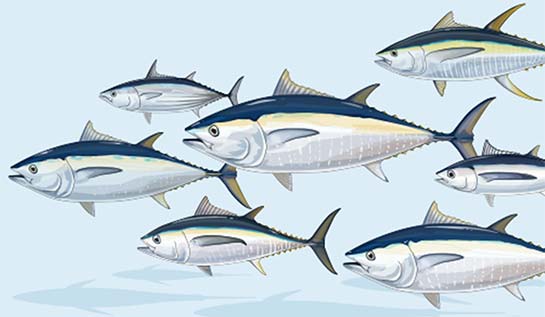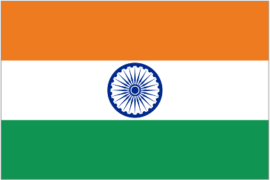Fishing vessels catch enough tuna to contribute more than US $42 billion to the global economy annually, according to a report released on May 2 by The Pew Charitable Trusts, an independent non-profit, non-government organization (NGO) headquartered in Philadelphia, Pennsylvania.
The report, entitled Netting Billions: A Global Valuation of Tuna, estimates the worldwide value of the primary commercial fisheries targeting the seven most commercially important tuna species caught in 2012 and 2014. The analysis found that the amount paid to fishermen ranged from $10 billion to $12 billion a year, while the full value – including the total amount paid by consumers at supermarkets and restaurants around the world – was at least $42 billion in 2014.
“It’s no secret that tuna are big business,” said Amanda Nickson, Pew’s director of global tuna conservation. “Now, for the first time, we’re able to put an actual price on what’s at stake in the fight for the conservation and sustainable management of these commercially and ecologically important fish.

“All told, the value of tuna is greater than the gross domestic product of at least 108 countries,” she added. “Given the economic gains for coastal economies connected to the commercial industry, tuna is an asset that every government should make every effort to protect.”
The analysis also provides data by ocean region, species and gear used to catch tuna. According to the data, the total catch in the Pacific Ocean has the highest value, estimated at $22 billion in 2014.
When the estimated value is analyzed by species, skipjack tuna is worth more than all bluefin species, but only because of the volume of skipjack caught every year. If individual fish value is considered, bluefin is by far the most highly prized. Together, bluefin species generate at least $2 billion to $2.5 billion a year in the global marketplace.
Indonesian Catch Ranks No. 1
Based on data reported to the world’s regional fisheries management bodies, the top tuna-fishing nation is Indonesia, with total landings in 2014 of more than 620,000 metric tons. Its vessels fish mainly in the eastern Indian and western Pacific oceans, in contrast to several other major fishing nations that support large global fleets.
Most of the tuna landing nations with diverse fleets have boats that fish using all gear types and target all species. Six of the top 10 – Japan, Taiwan, the USA, Korea, Spain and France – have large global fleets that ply waters far from their home ports. The Asian and European fleets, in particular, fish all major ocean basins and land tuna around the world.
The remaining top catching nations have very large local or regional fleets that fish in the highly productive eastern tropical Pacific (Ecuador) or western and central tropical Pacific (the Philippines and Papua New Guinea).
Pew’s report concludes that the value of global tuna stocks can increase if fishery managers take a comprehensive and precautionary approach to managing these populations, some of which are overfished. Scientists recently concluded that the Pacific bluefin tuna population has declined by 97.4 percent from its historic unfished levels.
Likewise, bigeye tuna in the western and central Pacific have declined by 84 percent.
“Short-term economic gains often drive management decisions, but there is far more value to be found in responsible, forward-thinking management,” Nickson said. “The governments responsible for oversight must remove the barriers that block progress toward adopting science-based catch limits and modern management tools. The economic security of countless coastal communities that are home to millions of people depends on it.”
The estimates do not include less tangible benefits from tuna, such as the value of preserving ocean ecosystems or the revenue generated by recreational activities and tourism, all of which probably would dramatically increase these species’ total worth.
The report summarizes an analysis that Pew commissioned from Poseidon Aquatic Resource Management Ltd., a consulting firm based in the United Kingdom.





